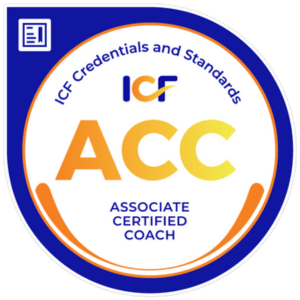|
This week I would like to share with you, 5 different types of questions. We all know that the questions you ask, are not always for you to get the correct answer. Sometimes they are for your team, students, or even relatives to be able to gain insight if needed.
Being questioned is something that can challenge and clarify your own thinking in a way that moves you forward. If you are asked a powerful question in formulating your response you will often be thinking of the issue in a completely different way. think of how many times you've heard yourself answering a question and thinking I never thought of that before It was the Romanian French playwright Eugene Lonesco who once wrote; “It is not the answer that enlightens, but the question”. As a coach, my job is to ask questions that will elicit insight, and new thinking, and challenge limiting beliefs about oneself. So here are my top five types of question 1.Open question An open question is one where there is no right answer. It will not be a yes or no answer as the answer should be far longer than the question. An open question should interest and stimulate the person, getting them to think deeper than they do usually. Example Instead of “Do you think we need to change a few things to make this relationship more productive?” Try: “What do we need to change to make this relationship more productive/positive?” 2. Challenging questioning Questions that challenge the learner will lead them to make progress and uncover layers of their issues or situations that are below the surface. In answering challenging questions, a person would develop a greater awareness of the issue and build a different perspective. Example If I wasn’t here, what would you do? Or, if you were me and someone came to you with the same problem, what would you say to them? 3. Visionary questioning Visionary questions are literally questions that prompt the learner to see what they are talking about perhaps, once again, with new eyes. If you are asked a visionary question, yeah huh you will be asked to use your imagination and picture what you are thinking about. Example “So where do you see yourself in five years?” or “Imagine in three months from now all obstacles are removed and you have achieved this task, how did you get there?” 4. Exploratory questioning Exploratory questions are going to encourage people to be more reflective in exploring the topic. In this instance, they may be given something to go away and think about, especially if you are dealing with Performance Management or identifying strengths or areas for development. Example “What motivates you?” or “What does it mean to be successful in your job” 5. Powerful questioning Powerful questions can really get to the hub of a problem and our best used when the person seems to be at a dead end, or if it seems like the real issue is being disguised. They are short and cannot be avoided. They will demand an honest and truthful answer and will go beneath the surface and probe what the person knows already and uncover endless possibilities. Example “What do you want to happen?” Or “What are you not saying/”, or even, “What is the real challenge here?” Picking the right type of question for the situation does take practice, but we can all improve our conversations with good questioning. I like the idea that as a leader, it is not your role to take on board the tasks your team struggle with, but to help them to overcome their challenges themselves. So, my tip of the week for you to consider practicing this week is; “Ask the right questions to help your people learn” Tags:
0 Comments
It is that time of the year when most of us have to play a part in the return of students to school. So today, I have my 5 top tips to help facilitate the smooth transition back to school. No, let's make it 6 then we can have 2 for each of the shareholders, students, teachers, and parents.
I love the quote for this week it sums up exactly how schools can create success for all their shareholders, it goes like this; "Unity is strength... when there is teamwork and collaboration, wonderful things can be achieved". Mattie Stepanek As a former teacher and pastoral lead, I would go on and on about working together for the betterment of -mainly-the students, but in all fairness, when it worked all parties felt the benefit. I would talk in assemblies, at parent evenings, and at team meetings about the tripod of Students, Parents, and teachers all working together. My philosophy was always that students spend six hours a day, some 1,200 hours a year, in a classroom with their teacher each year. When parents and teachers work together, students will have a positive and successful school experience — educationally and socially. It takes effort, but make sure you establish a cooperative relationship. Here were my main points. For parents Whether you are talking on the phone, emailing, or sitting face-to-face with your child’s teacher, make sure communication is positive and upbeat. Negativity helps no one. Even if you are not getting what you think you or your child deserves, negotiate positively. When communicating with your child about school matters, keep them positive, if a child thinks you don't agree with something at school, they will share it at school and that may lead to further challenges. with this. This would be part of creating boundaries with your children, which we all know can be difficult at times. If you would like a template to support you with this, I have linked one for you free of charge here Setting boundaries with your teen For teachers As early as possible do a get-to-know-you exercise with your form class. This is so simple but effective' Create a template with 5 questions for the students to answer about themselves. I used questions that included, "Whom they would like to make most proud?" and "My perfect career would be" etc. This information I and my tutors then used to support their progress during the year as well as share this with other teachers that may find them a little challenging. Here is a link to a template here. Simple "getting to know you" template Please be careful when asking students to talk about their holidays, where they went and what they did. Not all students will have had the luxury of a nice holiday in a faraway country. There will be those who either went without or stayed local. For them, they may see it as an embarrassment, this would not be the best way to start the school year. We all know how cruel kids can be. For students Plan carefully and set routines, put space aside in your room for your study resources, and create a homework timetable., This allows you to make time for computer games and other hobbies. If you learn to create boundaries now, it will be a lifelong skill. As would, create routines for getting up, having a good breakfast, leaving on time, completing homework, and of course a consistent bedtime for the well-needed rest. Make friends with a variety of people, the more personalities you know, the more you will learn from them. Do this by joining different study clubs, representing the school with sports, or joining the student voice committee. This will also help you build the soft skills needed to prepare for the working environment, in time. I hope you find value in these tips for the return to school period, I am sure there will be a time when you may need to refer to them. So, as you can tell the key word here is Communication. Parent-teacher relationships only work well if a teacher not only puts in the effort to respond to your concerns and questions but also reaches out to share concerns and compliments with you. With this, I would like to share my "tip of the week" which is "Teacher or parent, make contact and introduce yourself, start right" Tags:
|
AuthorRichie Forde Archives
February 2024
Categories |
Phone: +1 (246)-842-6876
Email: [email protected]
Business Reg no. 70161
© 2024 Edge Barbados
Engage-Develop-Grow-Evolve
Facebook - Instagram - linkedIn
Email: [email protected]
Business Reg no. 70161
© 2024 Edge Barbados
Engage-Develop-Grow-Evolve
Facebook - Instagram - linkedIn




